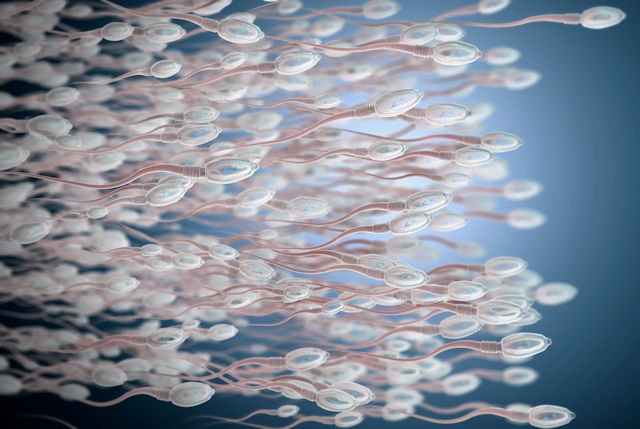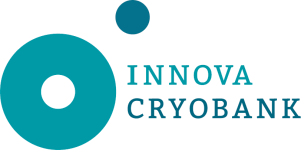Sperm Bank
INNOVA CRYOBANK offers very high quality semen samples to authorized assisted human reproduction centers. The samples are optimal for IAD and IVF treatments.
Characteristics of frozen sperm samples
Sperm samples for IAD
Trained and prepared semen using density gradients. With a REM greater than 30 million total mobiles per ml. Samples can be used in IAD directly after thawing without the need for a gradient or swim-up.
Semen sample for ICSI and conventional IVF
The sperm concentration of this sample exceeds 40 million / ml and a motility [a + b] above 40% and with a PSMC that exceeds 16 million total motives per ml.
Frozen semen samples are distinguished by their excellent quality and must be prepared using the desired wash-up and gradient or swim-up protocol.
Conservation and use of samples
The semen is preserved in high security 0.5 ml straws with CE marking from Cryo Bio System and labeled under the Single European Code (SEC), which guarantees security in traceability and identification.

Sperm DONOR EVALUATION
The semen samples are obtained from donors who are men between 18 and 31 years old who have undergone a process of medical, psychological and genetic evaluation with very high demands.
DIVERSITY OF PHENOTYPES: Caucasian (Nordic European), Caucasian (Mediterranean European), Asian, African.

Medical evaluation
A study of personal and family medical history is carried out until the second stage of consanguinity, to rule out hereditary diseases, as established in the Spanish Law on Assisted Human Reproduction 14/2006, as well as Royal Decree-Law 9/2014, of July 4, which establishes the quality and safety standards for the donation, obtaining, evaluation, processing, preservation, storage and distribution of human cells and tissues and approves the coordination and operation for use in humans and its subsequent modifications.
An assessment of the psychological history of the donor and its environment is carried out following the recommendations of the Spanish Fertility Society (SEF) and ESHRE.
In addition, a study of the quality of the donor’s semen is carried out to know the values of sperm concentration and mobility, as well as its morphology.
General analytics
- Blood type
- Rh factor
- Hemogram
- Hemostasis:
- Prothrombin activity
- APTT
- Biochemistry:
- Glucose
- Creatinine
- Total cholesterol
- HDL cholesterol
- Triglycerides
- Transaminases (GOT, GPT)
- SEROLOGY: serological study to rule out sexually transmitted diseases
- HEPATITIS B and C – (HBsAg, HBsAb, HBcAb (IgM, IgG), Hepatitis C Ab)
- SYPHILIS – TPHA-RPR
- CMV – CMV Ab (IgG, IgM)
- CHLAMYIDIA – performed by urine PCR
- Microbiological culture to rule out those donors that may have pathogenic microorganisms that may cause pathologies in recipient patients.
SARS-CoV-2 screening
- TRIAGE + PCR + Serology (anti-IgG and anti-IgM) is carried out in the acceptance protocol:
- TRIAJE (-), PCR (-), and antic IgM (-) – Accepted
- TRIAGE (+) or PCR (+), or anti IgM (+) – Not accepted.
- PCR is repeated every 14 days.
- Serology is repeated every 3 months.
In the event that the donor has been vaccinated, SEF recommendations will be followed.
Genetic Screening
IN INNOVA CRYOBANK we pay special attention to genetics, so we carry out a complete genetic screening for all semen donors, discarding donors who are carriers of pathogenic mutations of the most prevalent genetic diseases.
KARYOTYPE – CHROMOSOMIC STUDY
Only those donors whose karyotype has normal values are admitted, ruling out those who have polymorphic variants of the karyotype.
STUDY OF CARRIERS OF RECESSIVE MONOGENIC DISEASES
This genetic study makes it possible to rule out those candidates for sperm donors who are carriers of pathogenic mutations of the most prevalent monogenic recessive diseases in our environment (Mediterranean area of Europe).
Genetic matching
Genetic matching is performed to compare the donor’s genetic information with that of the recipient patient. This genetic study makes it possible to avoid the transmission of genetic diseases. For this, the study of 307 genes related to monogenic recessive diseases is carried out, including variants with especially high incidence in the Mediterranean area.
TRANSPORT
We only use approved transport containers for air and land transport of biological samples.
The containers travel inside security packaging with ANTI-HANDLING SYSTEM that guarantees the chain of custody.

